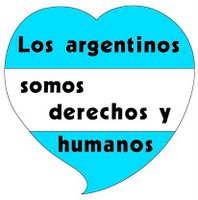One has rights – or does not have them, as the case may be. One can be right, of course, but this particular formulation of the claim to legitimacy, this assertion of rightness, is not necessarily of the same register as an assumed, or claimed, legal or moral entitlement which might transform the circumstantial, concrete instance of being correct about this or that into having just claim or, more simpy put: of being right into having a right – which is to say, into a property. The language of rights is, in its grammar, the language of property.It's certainly true that the language of rights and the language of property overlap. But I'm not entirely sure that the two can be conflated so quickly. Or rather, it might be worth unpicking the differences that someone such as Locke (whom s0metim3s quotes) obscures.
So, yes, property discourse infiltrates rights discourse at almost every turn. The UN Universal Declaration, for instance, delcares in its first article that "All human beings are born free and equal in dignity and rights. They are endowed with reason and conscience and should act towoard one another in a spirit of brotherhood." And for "endow," the OED gives "1 a. To give a dowry to (a woman) [. . .]; 2. To enrich with property; to provide (by bequest or gift) a permanent income for (a person, society, or institution)."
(Let's hold off for a moment on the familial language of "brotherhood" and the innate connection between rights and reason.)
On the other hand, rights constitute a peculiar kind of property, if property they are.
First, in that (some?) rights are held to be, as the US Declaration of Independence puts it, "unalienable." They are not to be bought and sold; they are innate, whether that innateness stems from the fact that they are natural, or from some legal or constitutional framework. Human, natural, and civil rights can all be considered "unalienable" from this perspective. They may be abrogated or abused, but they can never be taken away.
Yet, second, rights discourse also sometimes indulges in the language of alienability. Some rights can be won or lost; they are precarious or (again, from the US Declaration) need to be "secure[d]." In so far as we can be deprived of our rights, then it is simply not true for instance that (as the UN Declaration has it), "everyone has the right to freedom of movement and residence within the borders of each state."
So rights are at turns almost ontological, in that they are coterminous with existence: I am, therefore I have rights. And at other turns, they are a precious commodity, all too easily forfeited (if we do not act upon them) or lost (if we are deprived of them).
To what extent then can rights be exchanged? Social contract theory seems to suggest precisely such an operation, as natural rights are given up in favour of civil rights. But Spinoza (for instance) implies that in fact such rights can never be surrendered; indeed, that it is pure ideology to suggest so.
Do we have the right not to have rights? I suspect that this is what's at issue when the state steps in to criminalize suicide or euthanasia, for instance. But then suicide, or self-harm of any sort, is rather a tricky issue for Spinoza, too.
 Meanwhile, as to the slippage between "being right" and "having rights": Marguerite Feitlowitz points out that the Argentine junta played out precisely such a game of words in the context of other games at the time:
Meanwhile, as to the slippage between "being right" and "having rights": Marguerite Feitlowitz points out that the Argentine junta played out precisely such a game of words in the context of other games at the time:This war of words culminated in a dramatic display in 1978, when the World Soccer Championships were held in Argentina. Taking advantage of their access, foreign journalists pressed the regime for information on reported disappearances, torture, and secret concentration camps. "What do you mean, 'human rights'? the commanders fumed. "We Argentines are human, we Argentines are right." The message was writ large on a huge banner in the reception area of Ezeiza, the international airport. Shiny decals with this slogan appeared in shop windows and offices, on private cars and taxi cabs. Employees at the Ministry of the Interior--who routinely shredded writs of habeas corpus--wore the decals and demonstrated in Plaza de Mayo. This group came face to face with another demonstration--parents, spouses, and children of desaparecidos who marched silently, wearing pictures of their loved ones and signs that asked ¿Dónde están? "Where are they?" The official reply? "We Argentines are human, we Argentines are right." (A Lexicon of Terror 35-36)Clarín has an article on this same campaign, ""Somos derechos y humanos": cómo se armó la campaña", and see also Rubén Morales's "Somos derechos y humanos". Morales also bears out Feitlowitz's contention that public relations (PR) functioned for the Argentine military in the way that radio served the Nazis (41).

